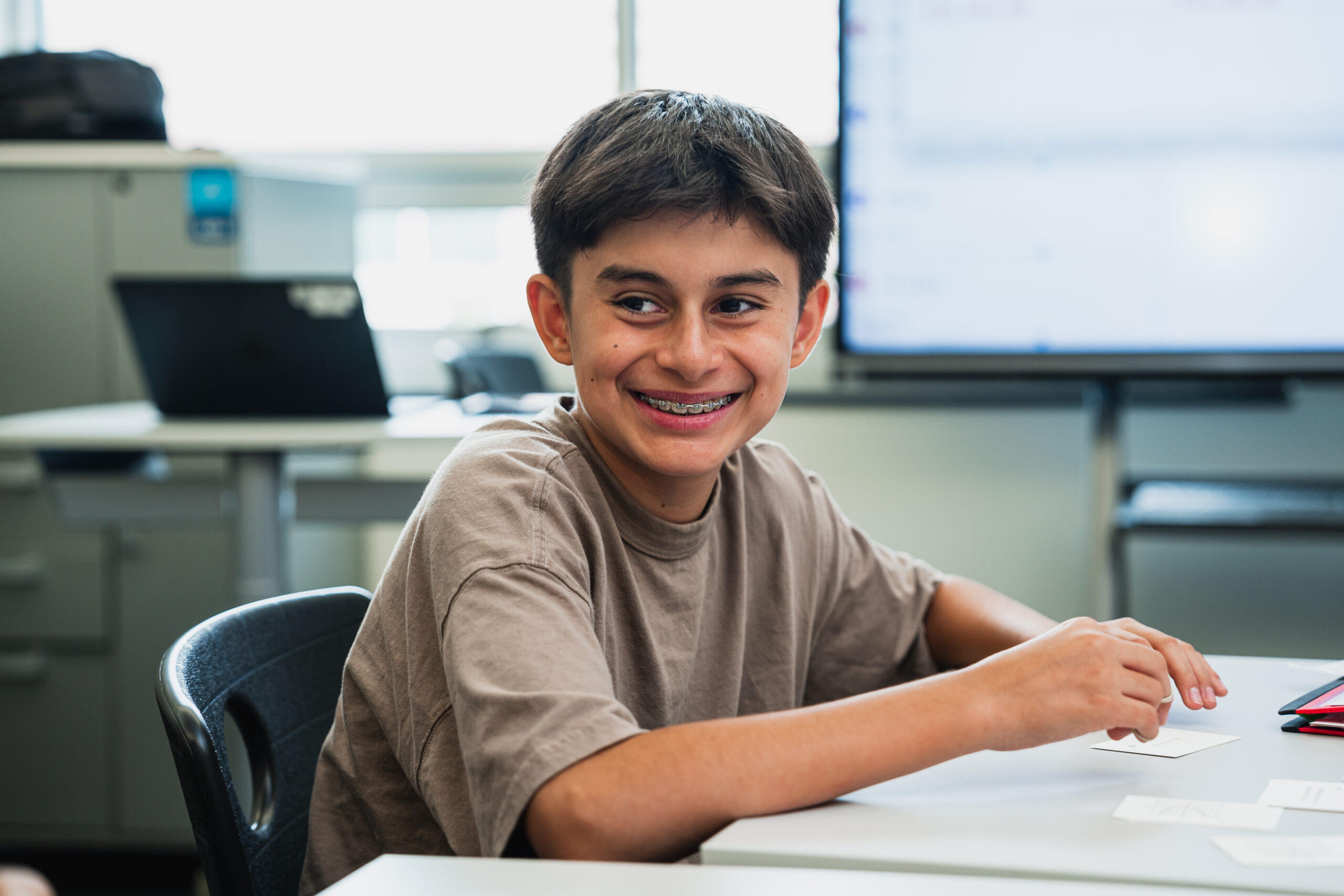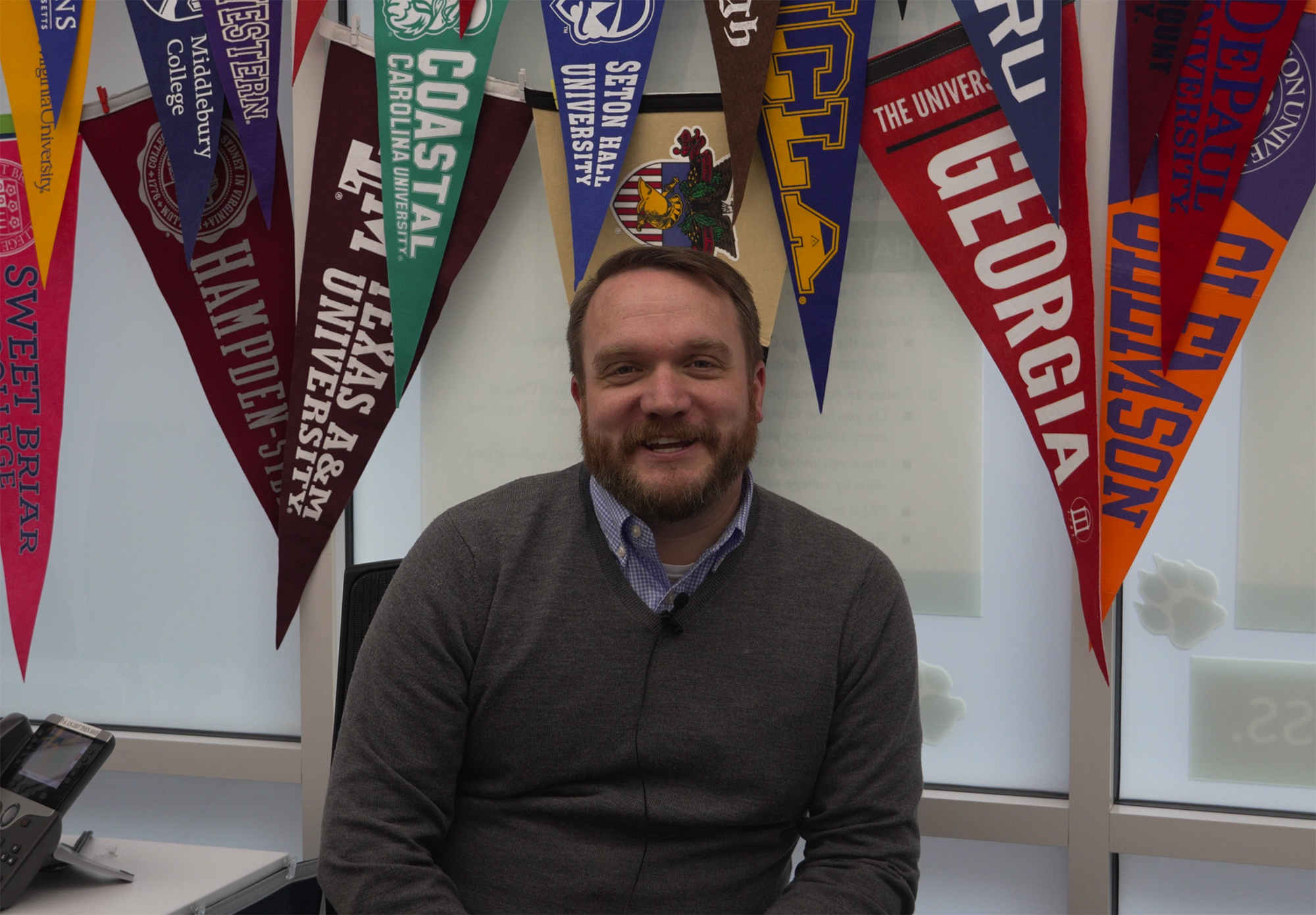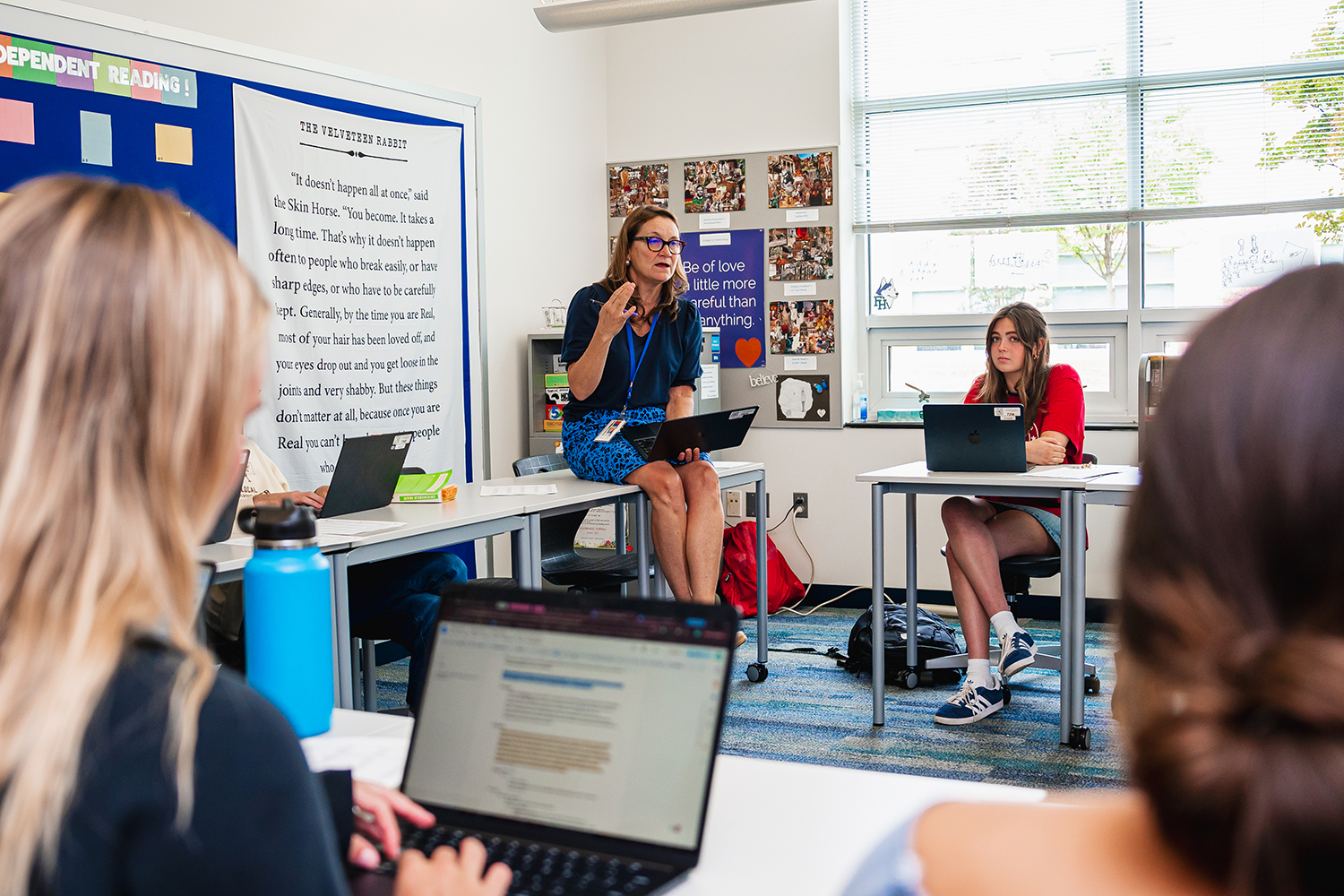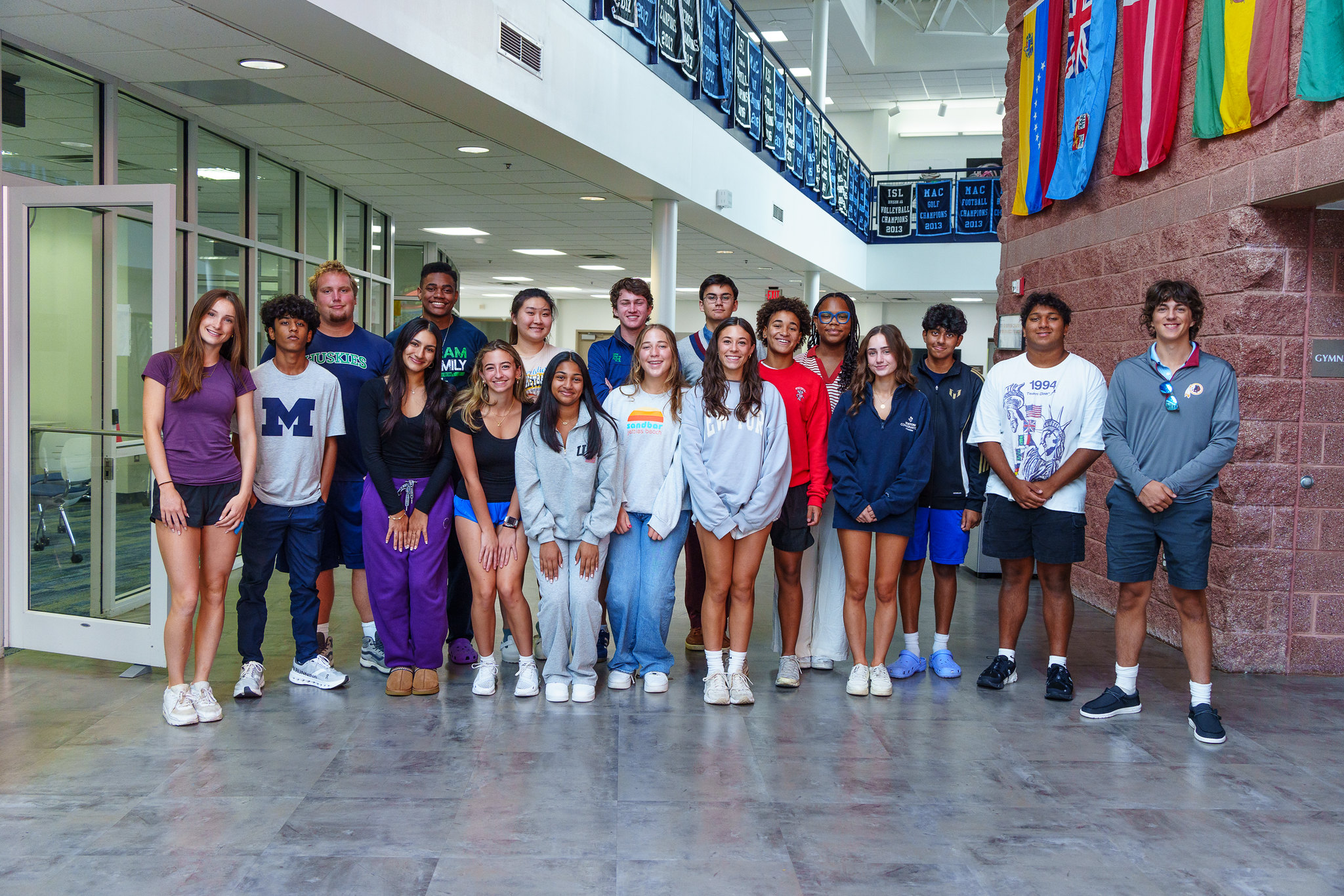LEARN MORE ABOUT FLINT HILL
HUSKY HIGHLIGHTS

September 3, 2024
Written by Debbie Ayers,
Assistant Director of the Upper School and Upper School Academic Dean
Inside the Upper School Course Selection Process
As the Upper School Academic Dean, I'm highly involved in course selection each year. Here's some information about how Upper School students choose their classes.
Course progression has four components. The first is meeting diploma requirements. Students will have an opportunity to sit with advisors, academic deans, and teachers to refresh and review the course requirements for a diploma, making sure that the next step or the next course that they choose is one that will meet a diploma requirement. If they've finished a requirement in a certain subject area, they can move on to take advanced courses or electives in the subject area.
In addition to reminders about diploma-required courses, teacher recommendations are part of the discussion that we have with our students. We want teachers to be able to share with students the skills that they have been working on, where proficiencies exist, where they need a little more work, and how this translates to the next course they select in a subject area. Teacher recommendations are very valuable.
Skill development: it's important for our students to be able to articulate what skills they're learning. Obviously, the content is going to be the title of the course — they will know that — but within the titled course, what are the prime skills? Is it creative writing? Is it critical writing? Are they working on project-based learning and collaboration with a team approach? Are they focused on certain study skills that are unique to a subject area? Skill development becomes a very critical piece of the conversation as we're thinking about courses for next year.
The last component of course progression is the student request. Students may change their areas of interest during their four years of high school, and we want to lean into that and hear what they're thinking. We nurture a healthy dialogue between instructors — the ones that they have now and the ones that they might be introduced to going forward into the next school year. Their requests, their thoughts, their wishes and passions about their own academic journey are certainly important to us as well.
Also, electives. Students are so interested in being able to pursue course information as well as projects that they are working on in the context of a course that could be an elective. We have a wide array of electives in all of our academic departments. Students will find greater flexibility in their schedules as they become juniors and seniors to take on elective courses; that said, in freshman year and sophomore year, students will have an element of choice in the courses that they select.
Our academic departments include Math, Science, History/Social Sciences, English, Modern Language, Classical Language, Innovation, and Fine Arts. There's plenty to choose from and plenty for our students to have an interest in learning more about.
Debbie Ayers is Assistant Director of the Upper School and Upper School Academic Dean. She teaches in the History Department, mentors independent study projects for the Innovation Department, and serves as the faculty advisor to the Academic Honor Council. She is the parent of two Flint Hill alums.
LEARN MORE ABOUT FLINT HILL
Fill out the form to receive updates from our team.
RECOMMENDED FOR YOU
Upper School Freshman Class Dean Andrew Kane shares seven key things he wishes parents knew before their students start high school.
Flint Hill's Women’s Literature course explores what it means to navigate the world as a woman. It features a broad range of media to shed...
Our Upper School Dean of Students talks about leadership opportunities that are available to students in grades 9-12 at Flint Hill.
Want to know how Flint Hill Upper School students choose their courses each year? We provide an insider's look at the process.





